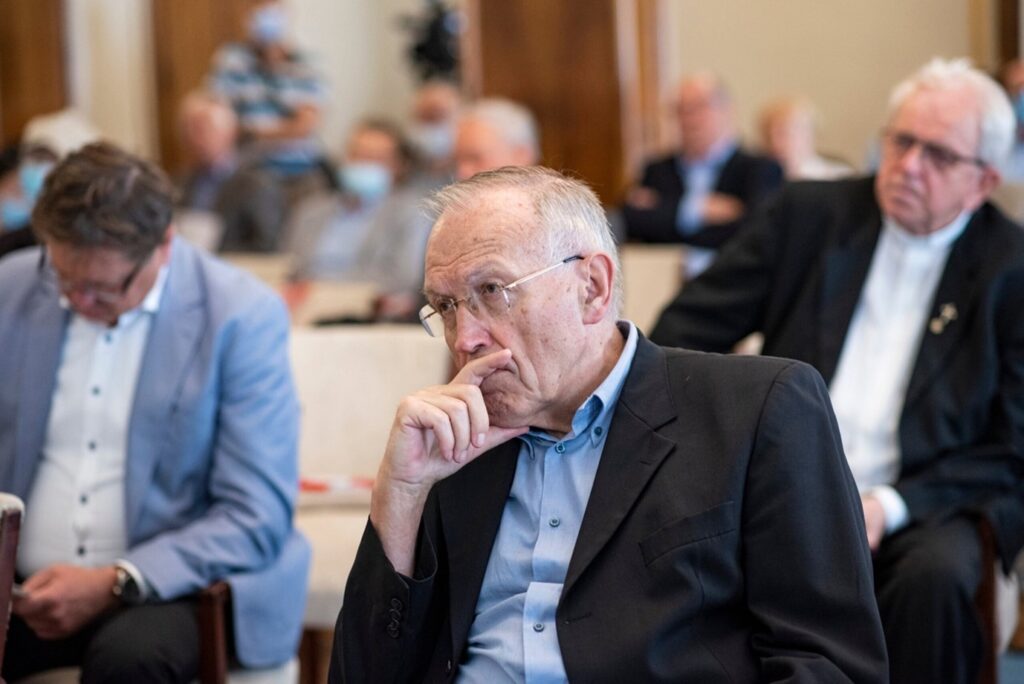Thirty years after gaining our independence, we still have a half-democracy in Slovenia because the left-wing political forces never intended to really step down from power and allow for pluralism, said the retired Archbishop of Ljubljana, Anton Stres, at the end of the 56th Draga Study Days 2021, adding that the forces of continuity still control upbringing and education, culture, the media, the judiciary and finance.
In his assessment of the current situation in Slovenia, thirty years after the process of democratisation and gaining our independence, the retired Archbishop of Ljubljana, Dr Anotn Stres, said that Slovenia also does not have a civil society “worthy of that name, as it is politicised because it suffers from a lack of financial independence and is, therefore, latched on to the authorities, which are keeping it alive with its subsidies.”
The only independent institution in our country, according to Dr Stres, still remains the Catholic Church, which is only tolerated, but radically undesired in Slovenia. At the same time, Stres emphasised that true respect for religious freedom is a litmus test of respect for human rights and “as long as we have such unresolved issues like religious studies in schools, which is already a well-regulated thing in other republics of the former Yugoslavia, this will continue to be the indication that Slovenia, as a democratic state, still remains a distant ideal.”
Prior to that, Stres said that the representatives of the former communist government supported the democratisation and independence of Slovenia three decades ago, while still trying to maintain control over areas such as education, culture and public opinion, the media, the judiciary, and finance.
The 56th Draga Study Days 2021 are organised by the Slovenian Association of Intellectuals in Trieste
Prior to Stres’s lecture, the tenth Peterlin Award was presented, intended for individuals or organisations that work in accordance with the principles of Sloveneness, democracy and Christianity, the Slovenian Press Agency reports. This time, the award went to the Gorizia cultural worker Franka Žgavec, who is the president of the Lojze Bratuž Cultural Centre in Gorizia. In the morning, they also prepared a round table entitled Between Defending One’s Own and Finding Common Ground, where sociologist Igor Bahovec, director of the Social Academy Matej Cepin, journalist Marjan Debevec, and theologist Roman Globokar discussed politics, ideology, and dialogue through the prism of Pope Francis’s circular entitled We Are All Brothers.
The 56th Draga Study Days 2021, organised by the Association of Slovenian Intellectuals from Trieste, and attended by, among others, the Ministers for Slovenians Abroad, Helena Jaklitsch, and Slovenian Ambassador to Italy, Tomaž Kunstelj, began on Friday with a round table of the National linguistic minority and guaranteed representation. On the same evening, on the occasion of the 30th anniversary of Slovenia’s independence, the Slovenia party took place, and on Saturday morning, The Youth’s Draga took place with a round table entitled Professions of the Future and New Opportunities: Along the Border, in Slovenia, and in the World. State Secretary for Slovenians Abroad, Dejan Valentinčič, also led a workshop entitled Studies, Education, Exchanges, Professional Training and Work Experience: Cross-Border opportunities. In the afternoon, the philosopher and writer Marko Uršič held a lecture entitled Man and Nature: From Coexistence to Lordship and Back, and in the evening, they presented a book by Ivan Sivec about the priest and politician from the Primorska region, Virgil Šček, entitled I Loved the Slovenian Nation.
Sara Kovač


